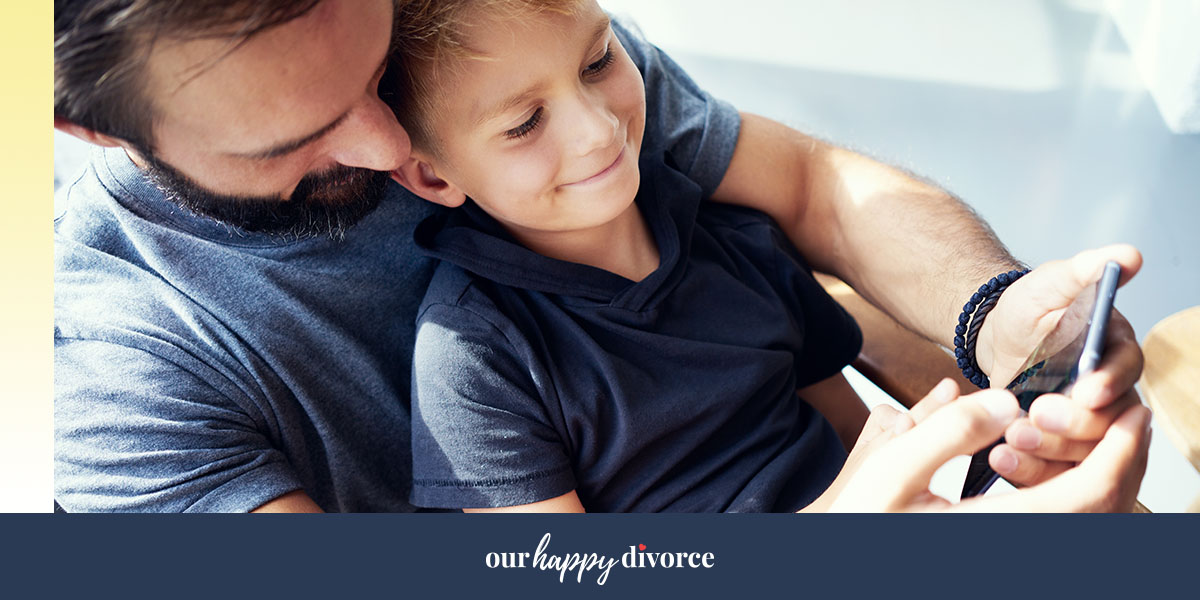
Co-Parenting: What’s Really Possible?
Our Happy Divorce Thursday, October 31, 2019
There’s a new trend on the rise that’s improving the lives of kids everywhere. Thousands of divorced couples are realizing that even though their marriages ended, their parenting relationships can continue in a positive, collaborative way. Co-parenting with your former spouse can give your children more stability, increase their self esteem and set them up for future success. Keeping your children at the center of all your decisions makes it easy to answer the most important co-parenting question: What’s best for the kids?
What is Co-Parenting?
Co-parenting is when divorced parents continue to work together to raise their children in a positive, multi-home environment. Each parent maintains their separate custody but they communicate and collaborate on decisions related to the kids. Emma Johnson of WealthySingleMommy.com puts it like this:“Ideally, co-parenting moms and dads work together in the raising of children, including big decisions like medical and religious practices, as well as daily routines, discipline, schedules and values.”
This type of collaborative parenting protects kids from many of the harmful effects of a contentious divorce. In every decision and situation, the children’s needs becomes the focus, instead of the relationship between ex-spouses. Learning to be successful co-parents is a process, but it gets easier over time.
The Benefits of Co-Parenting
Today’s Parent shared research from the Vanier Institute which shows that difficult divorces can lead to anxiety, depression, and self-esteem issues in children. Co-parenting helps avoid these issues by creating a positive environment for the kids.“I knew that nothing mattered more to Nikki and me than our son’s happiness, health, and well-being, and that we’d do anything to make sure divorce didn’t hurt him” ~Ben Heldfond, Our Happy Divorce
It’s normal for children in the middle of a divorce to question their place in it all. Parents who are committed to co-parenting can help kids feel more secure in a very uncertain time. Huffington Post points out some of the additional positive impacts of co-parenting, These include raising children who:
- Feel loved and know that their emotions truly matter.
- Can confidently express themselves.
- Maintain a strong bond with both parents.
By focusing on what’s best for the kids, parents typically find it easier to deal with their ex-spouses, too. When you begin approaching situations from the perspective of what’s best for the kids, it becomes easier to set aside hurt feelings and begin to move forward.
What It Really Takes to Co-Parent
At first, co-parenting may be challenging. To successfully co-parent, Psychology Today recommends approaching your ex with empathy, patience and open communication. It may take time to get into a groove in this new stage of your relationship, but the results will be worth it. Here are a few tips that helped Nikki and Ben become a strong co-parenting unit.
Own Your Part
We’re firm believers that it takes two to make any relationship work. On the other hand, when a marriage or relationship fails, both partners are also at fault. Far too often, divorce boils down to blame. Nikki and Ben couldn’t see a happy ending for their family until they both took accountability for their own parts in the dissolution of their marriage. It’s hard to look in the mirror and take ownership over your own shortcomings, but it is arguably the most important place to start when trying to create a healthy co-parenting relationship.Forgive Yourself
You may feel guilty because of something you did during the marriage or divorce, or you may struggle with a sense of failure. Giving yourself room to grieve and feel disappointed is essential, but so is forgiving yourself. Once you’re personally at peace, it will be easier to interact with your ex-spouse so you can both be there for your child.Forgive Your Ex
Nikki DeBartolo and Ben Heldfond often say they “faked it until they made it” when it came to their post-divorce relationship. After 7 years of marriage, the couple ultimately parted ways but kept one question at the center of their evolving relationship: what’s best for our child? They admit that even though the divorce involved hurt feelings, forgiving each other and keeping the focus on what was best for their son made it easier to deal with each other.Separate Your Feelings
Keep your focus on the kids, and avoid labeling your ex-spouse. While it’s normal to experience hurt feelings, the focus should remain on your children and not your relationship with your ex. Maintain positive interactions with your ex positive, regardless of what else is going on in the bigger picture.Check Your Ego
Seeing eye to eye makes co-parenting easier. Remember that you and your ex-spouse are both learning how to parent under these new circumstances. It’s easy to think your way is the best way, but try to approach each decision with what’s actually best for the kids. Continue to communicate with your ex, and work together for the kids.A happier, healthier divorce is possible, for you and your children. Co-parenting takes hard work, patience and active participation by both parents. In addition to being the best choice for the kids, co-parenting is also an easier approach for parents. Working together for the kids can make it easier to see the positives in each other as you move forward as parents. For an inside view of two parents’ story of their happy divorce, be sure to pick up a copy of Our Happy Divorce.